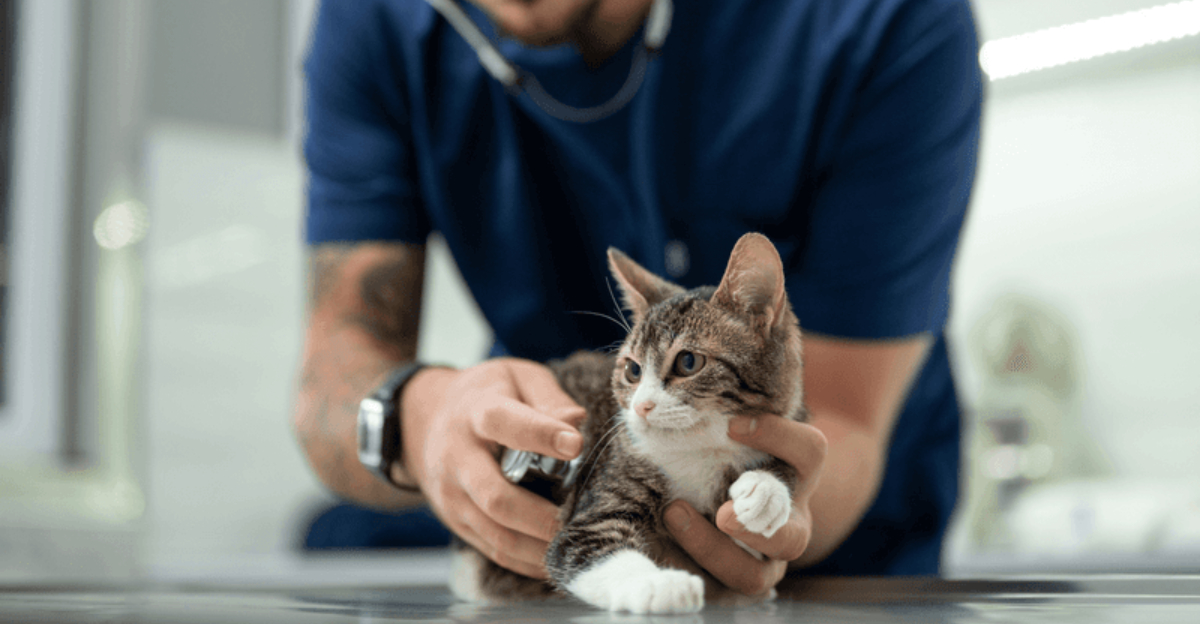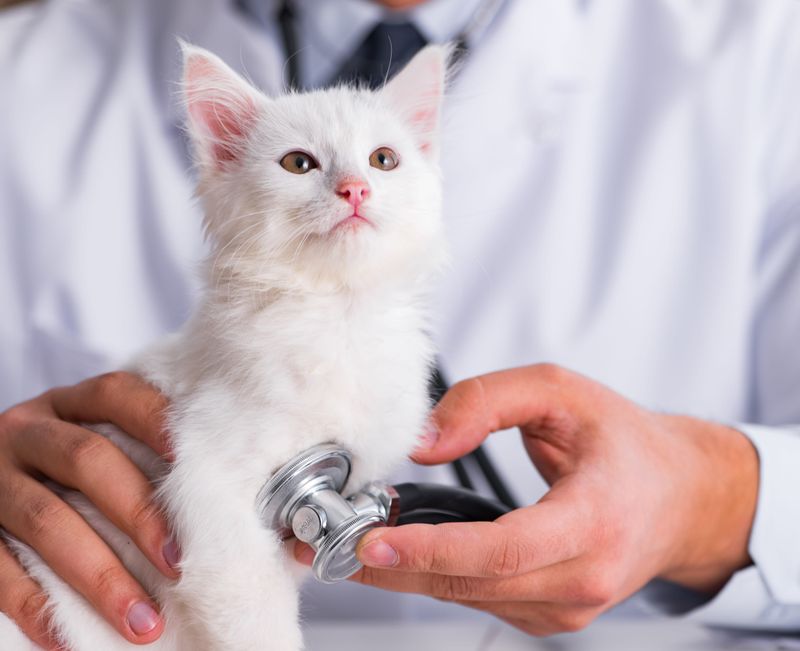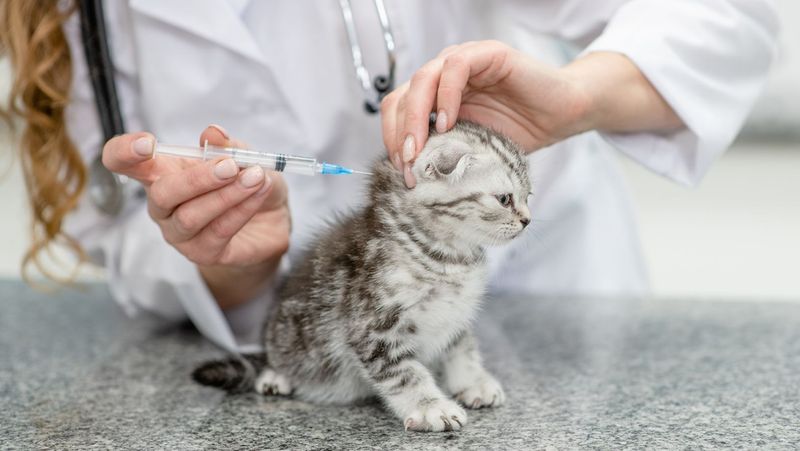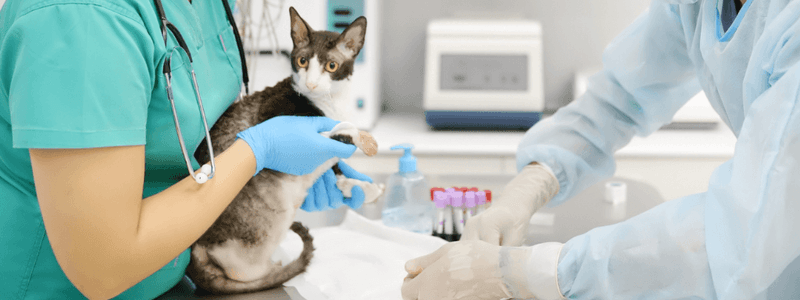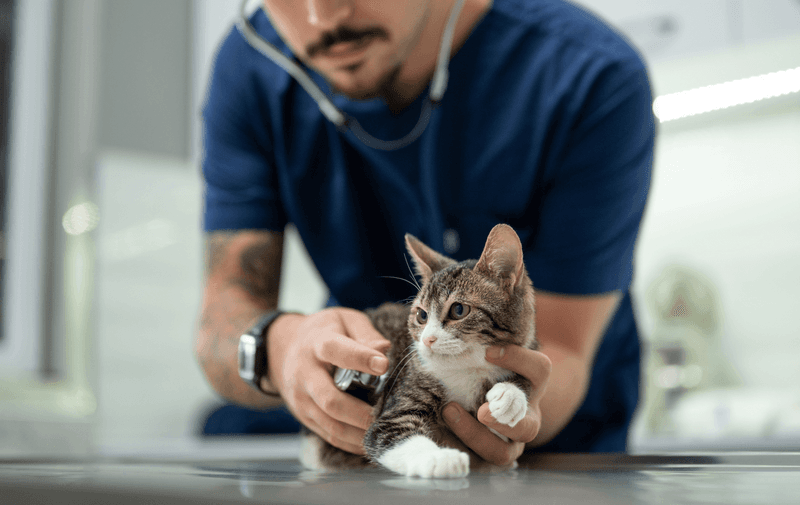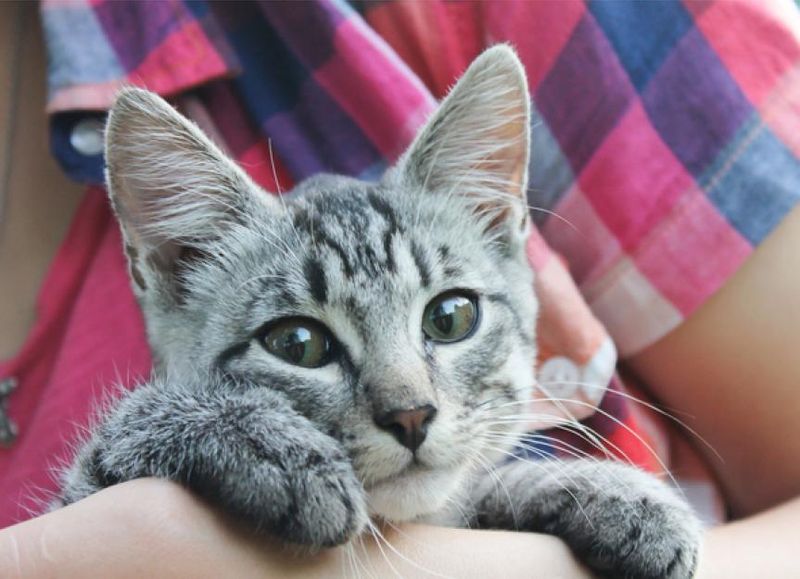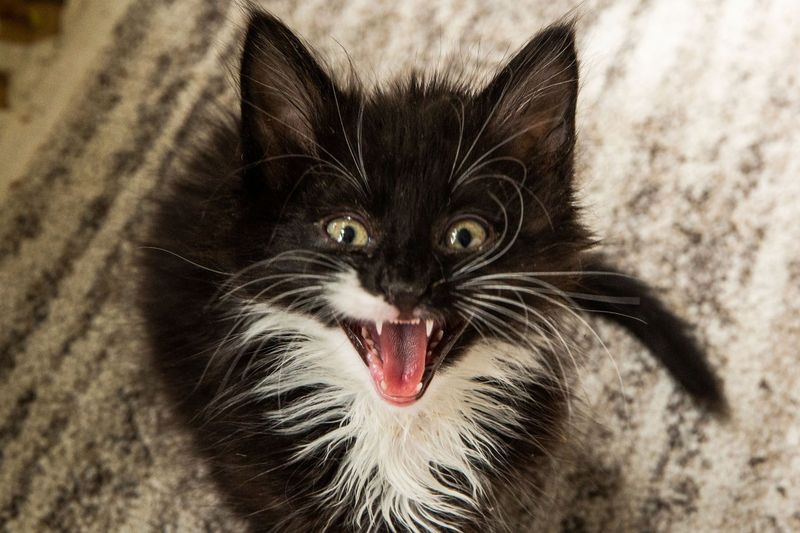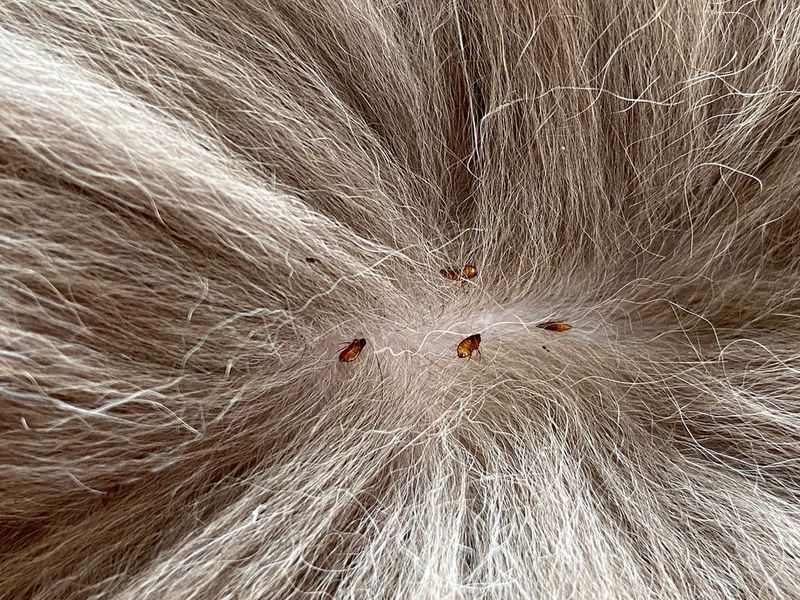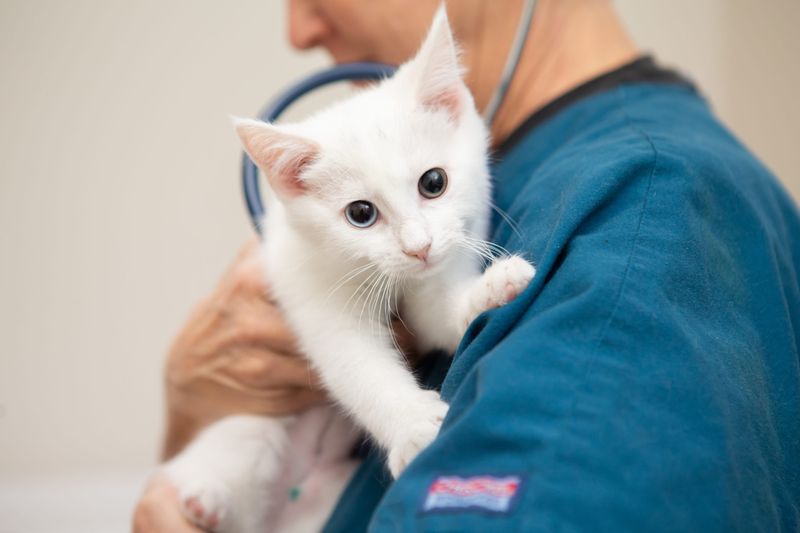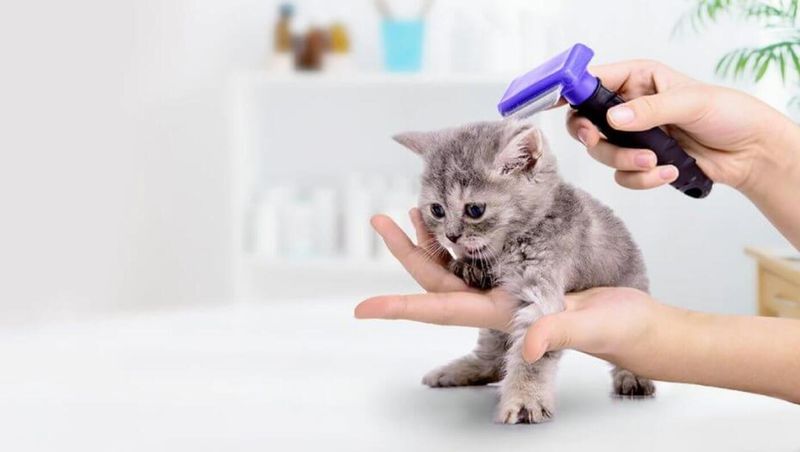📖 Table of Content:
Bringing a new kitten into your home is an exciting experience, and scheduling their first veterinary visit is a crucial step in ensuring their health and well-being. Here’s what you can expect during this initial appointment and how to prepare.
1. Physical Examination and Health Assessment
A kitten’s first vet visit begins with a comprehensive physical examination, where the vet checks weight, temperature, heart rate, and respiratory rate. Inspecting the little furball’s eyes, ears, mouth, skin, chest, abdomen, and joints ensures it’s growing right. Think of this as the kitten’s first report card for health! With a trained eye, the vet seeks any subtle signs of concern. This gentle introduction to healthcare sets the stage for a healthy life. Did you know that kittens have an innate curiosity? This curiosity can help the vet during examinations!
2. Vaccinations and Preventive Treatments
Ensuring that your kitten receives essential vaccinations is a cornerstone of preventive care. During the visit, vaccinations against diseases like feline distemper, calicivirus, and rabies are administered. This is akin to giving your kitten a shield against the unseen threats of the world. Alongside, deworming medications are often provided, protecting against internal parasites. With these measures, your kitten gets a head start on a healthy life. An engaging fact: cats have been revered and protected in many cultures, partly due to their health resilience!
3. Laboratory Tests
Laboratory tests are a crucial component of your kitten’s first vet visit. A fecal exam unveils any hidden intestinal parasites, like worms or giardia. Blood tests screen for feline leukemia (FeLV) and feline immunodeficiency virus (FIV). These tests are the detective work behind the scenes, ensuring nothing is amiss. Knowing your kitten’s health status is reassuring. Did you know that these tests are quick and usually done with minimal discomfort? They are vital for setting a health baseline just like a baby’s first health check!
4. Microchipping and Socialization
Microchipping offers peace of mind, ensuring your kitten can always find its way home. During this visit, the vet may discuss the benefits of microchipping. It’s a small step with significant peace of mind. Along with this, guidance on socialization helps your kitten grow into a well-rounded adult cat. A fun fact: Did you know that microchipping is as quick as a pinch and lasts a lifetime? It’s like a passport for your kitten! Successfully socialized kittens are often more adaptable and happier in various situations.
5. Spaying or Neutering Options
The discussion of spaying or neutering is a significant aspect of your kitten’s first vet visit. This preventive measure can enhance your kitten’s health and behavior. The timing and benefits of the procedure are explained, demystifying any concerns. An interesting tidbit: spaying and neutering contribute significantly to controlling the pet population, a responsible step for any pet owner. The conversation is about health benefits and community responsibility, shaping your kitten’s future. Did you know that fixed cats often live healthier lives?
6. Nutrition and Dental Care
Nutrition and dental care are crucial for a kitten’s development. Vets provide tailored advice on the right balance of nutrients and recommend suitable dental products. Tooth brushing might sound challenging, but starting young can make it a routine part of life. An engaging detail: A kitten’s growth is astonishing – they can double their birth weight in just a week! Proper nutrition supports this rapid development, while good dental care ensures those tiny teeth stay healthy. It’s all about building habits that last.
7. Parasite Prevention
Parasite prevention is an essential topic during your kitten’s first vet visit. Fleas, ticks, and other parasites are more than just nuisances; they can affect your kitten’s health significantly. The vet provides recommendations tailored to your local environment, offering protection against common pests. An intriguing fact: Cats are natural hunters, making them prone to picking up parasites. Preventive measures ensure that your kitten can explore safely. A healthy start involves more than just what’s on the surface!
8. Emergency Services
Knowing about emergency services for your kitten is more than a precaution; it’s peace of mind. During the first visit, information about nearby emergency and after-hours care is provided. This ensures that help is always within reach, no matter the hour. An engaging fact: Many emergency vet services are open 24/7, ready for any unexpected turn. This knowledge equips you to handle any urgent situation, fostering a sense of security. It’s like having a safety net for your furry friend.
9. Grooming Recommendations
Grooming is more than maintaining appearance; it’s about health and bonding. The vet provides advice tailored to your kitten’s breed and coat type, turning grooming into a pleasant experience. From brushing to bathing, each step is important. Did you know that grooming can reduce shedding and prevent matting? It’s also a great way to monitor for any changes in your kitten’s skin or fur. Engaging in regular grooming builds trust and a closer bond with your kitten, making it a joyful routine.
10. Cat Insurance
Cat insurance is a topic worth considering during the first vet visit. It provides financial peace of mind, ensuring that your kitten receives the best care without straining your wallet. The vet may offer recommendations on providers and coverage options. An interesting tidbit: Pet insurance can cover various aspects from accidents to chronic conditions. Knowing that unforeseen costs are manageable allows you to focus on what truly matters – your kitten’s well-being. It’s like a safety net for unexpected veterinary expenses.
